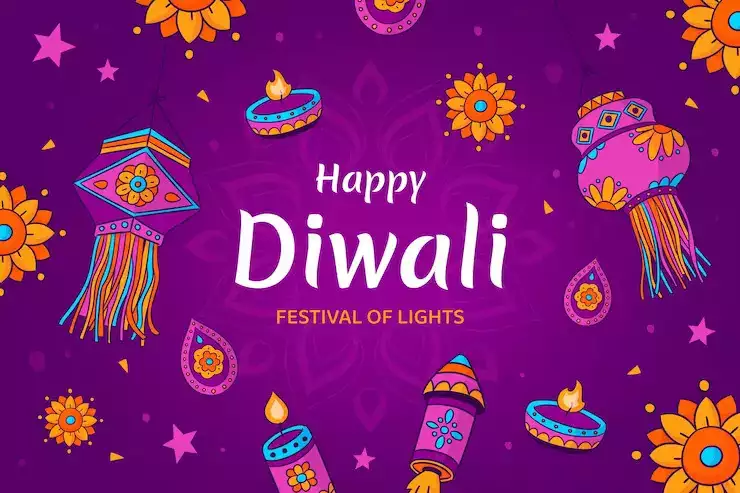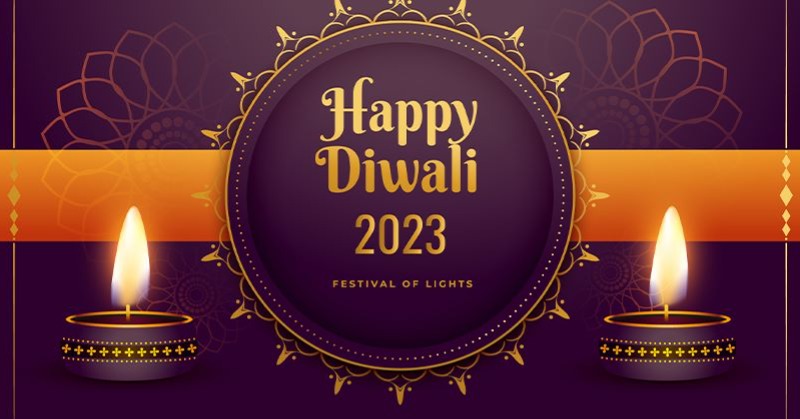NEWS
Mark Your Calendars: Diwali 2023 Date in India Calendar

Introduction to Diwali
Get ready to mark your calendars and light up your homes because Diwali, the festival of lights, is just around the corner! The vibrant and joyous celebration holds a special place in the hearts of millions across India. As we eagerly anticipate the Diwali 2023 date in India calendar, let’s delve into the significance of this auspicious occasion and explore how its date is determined each year.
The Significance of the Diwali Date
Diwali holds immense significance in Hindu culture and is celebrated joyfully and enthusiastically. The date of Diwali varies each year according to the Hindu lunar calendar, falling on the darkest night (Amavasya) of the month Kartika. This auspicious occasion symbolizes the victory of light over darkness and good over evil.
The timing of Diwali aligns with various mythological events, including Lord Rama’s return to Ayodhya after defeating Ravana, marking a period of renewal and prosperity for devotees. It is a time for families to come together, exchange gifts, share delicious meals, illuminate their homes with (oil lamps), and partake in fireworks displays.
Observing the Diwali date honors traditions and signifies hope, positivity, and spiritual growth for individuals worldwide. By understanding its significance within the cultural context, one can truly appreciate the beauty and meaning behind this vibrant festival.
How is the Diwali Date Determined?
The date of Diwali, also known as the Festival of Lights, is determined by the Hindu lunisolar calendar. This means that it falls on different dates each year, depending on the position of the moon and the sun. Specifically, Diwali is celebrated on the 15th day of Kartik, a month in the Hindu calendar.
The calculation for determining the exact date involves various astrological and astronomical factors. It usually occurs between mid-October and mid-November in the Gregorian calendar. The festival typically lasts five days, with each day holding its significance and rituals.
Diwali marks an auspicious time when people celebrate light triumphing over darkness and good prevailing over evil. Families clean their homes, decorate them with colorful rangoli patterns and lights, exchange gifts, and prepare delicious sweets.
Understanding how the Diwali date is determined adds to the richness of this vibrant festival that holds deep cultural and spiritual significance for millions around India and beyond.
Why Does the Date of Diwali Change Each Year?
Have you ever wondered why the date of Diwali seems to shift each year? The reason behind this change lies in the Hindu lunar calendar, which determines the timing of various festivals. Diwali falls on the 15th day of Kartik, a month in the Hindu calendar that varies based on the lunar cycle.
The lunar calendar follows a system different from the standard Gregorian solar calendar. It leads to variations in when Diwali is celebrated each year. Since it is based on moon phases, Diwali can fall anytime between mid-October and mid-November, according to our regular calendars.
This shifting date adds an element of anticipation and excitement as families eagerly await the announcement of when they will come together for festivities. Despite its changing nature, Diwali remains a cherished and highly anticipated festival for millions around India and beyond every year.
Impact of the Diwali Date on Celebrations
The date of Diwali holds significant importance as it influences the entire festive season. When Diwali falls earlier in the year, it means shorter days and longer nights, affecting the timing of rituals and celebrations.
Conversely, when Diwali falls later, it aligns with more excellent weather conditions in some parts of India, creating a more pleasant atmosphere for festivities. This variation impacts how people decorate their homes, choose traditional outfits, and plan gatherings with loved ones.
Moreover, the date of Diwali can impact travel plans as families often reunite during this time. Adjusting schedules to accommodate the fluctuating dates requires flexibility and coordination among family members across different regions or countries.
Diwali’s shifting date adds unpredictability to the celebrations each year and highlights the adaptability and resilience within Indian communities worldwide.
Preparations for Diwali 2023 Date in India Calendar
As the auspicious occasion of Diwali approaches on the 2023 date in the Indian calendar, preparations are in full swing across the country. Homes are adorned with colorful rangoli designs, diyas (oil lamps), and bright lights to welcome prosperity and good fortune into their lives.
Families are busy cleaning and decorating their houses to create a festive atmosphere for the celebrations. Shopping for new clothes, jewelry, and gifts for loved ones is also a big part of getting ready for Diwali.
Delicious sweets like laddoos, barfis, and jalebis are being prepared in kitchens to indulge in during the festivities. Unique dishes are being cooked to share with family and friends as they celebrate this joyous occasion.
Fireworks sellers are stocking up on sparklers and firecrackers for an unforgettable display of lights that will illuminate the night sky during Diwali. The air is filled with excitement as everyone eagerly anticipates the arrival of Diwali on its designated date in 2023, according to the Indian calendar.
Celebrating Diwali in Different Parts of India
Diwali is celebrated with great enthusiasm and zeal throughout India, but how it is observed can vary from region to region. In North India, people decorate their homes with colorful rangoli designs and light up their houses with diyas. Families come together for special puja ceremonies and exchange sweets and gifts.
In South India, Diwali coincides with the harvest festival of Pongal. People create intricate kolam designs outside their homes using colored rice flour or chalk powder. Fireworks light up the night sky as families gather to enjoy traditional delicacies like murukku and payasam.
In West India, particularly in Maharashtra and Gujarat, Diwali marks the beginning of a new year, according to the Hindu calendar. People clean their homes thoroughly before decorating them with marigold flowers and mango leaves. The festival also includes elaborate rangoli competitions where participants showcase their creativity through vibrant patterns.
In East India, especially in Bengal, Diwali is known as Kali Puja, a time to worship Goddess Kali. The streets are adorned with dazzling lights, and pandals showcasing the artistic idols of Goddess Kali draw crowds for darshan.
Each part of India adds its unique cultural flair to the celebration of Diwali, making it a truly diverse and magical experience across the country!
Conclusion
Diwali holds a special place in the hearts of millions across India. The date of Diwali may vary each year based on the Hindu lunar calendar, but its significance remains constant. As families and communities celebrate this festival of lights, the spirit of unity and joy shines brightly.
Mark your calendars for Diwali 2023 and prepare for a memorable celebration filled with lights, sweets, fireworks, and love. Let the essence of Diwali illuminate your life with prosperity and happiness. From north to south, east to west – India comes alive during this festive season as people revel in the traditions passed down through generations.
May the upcoming Diwali bring you blessings and fill your home with warmth and light. Happy Diwali!









